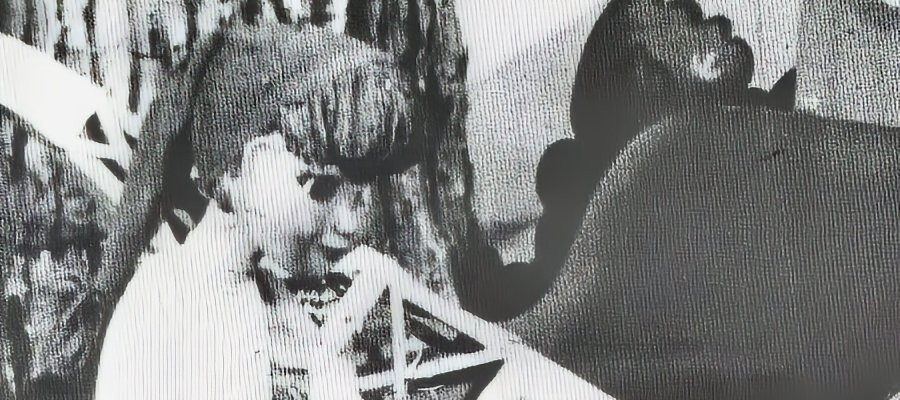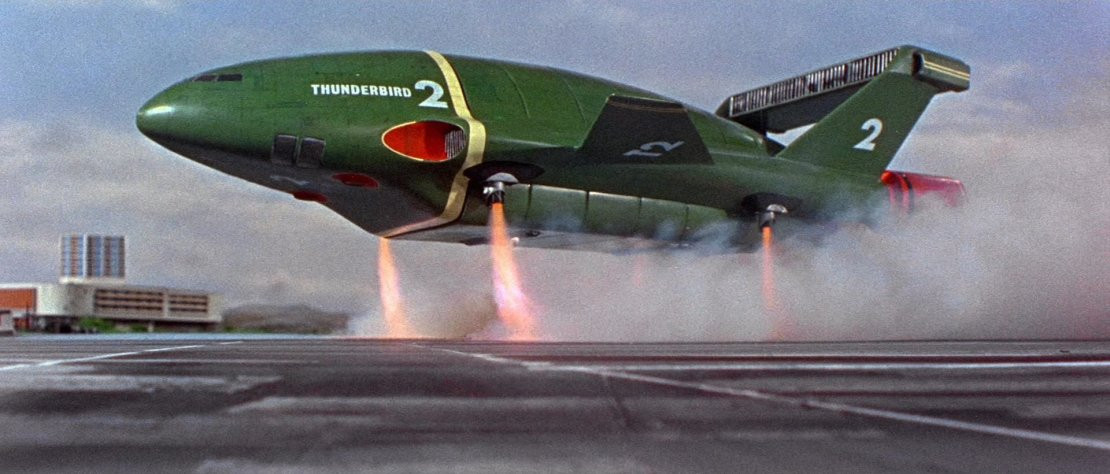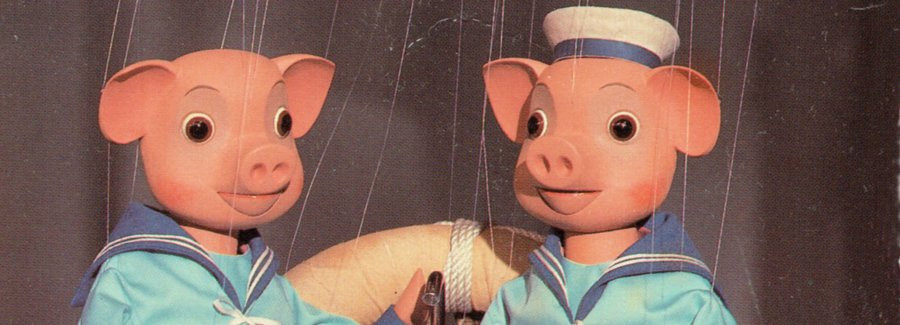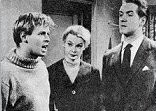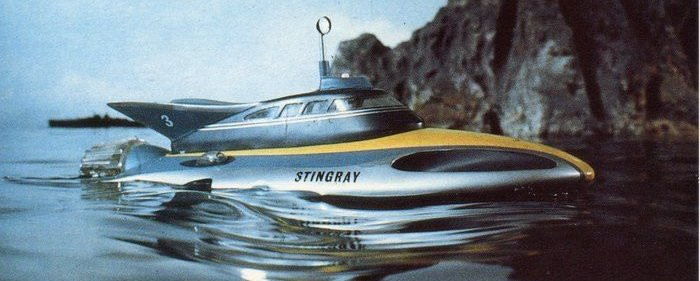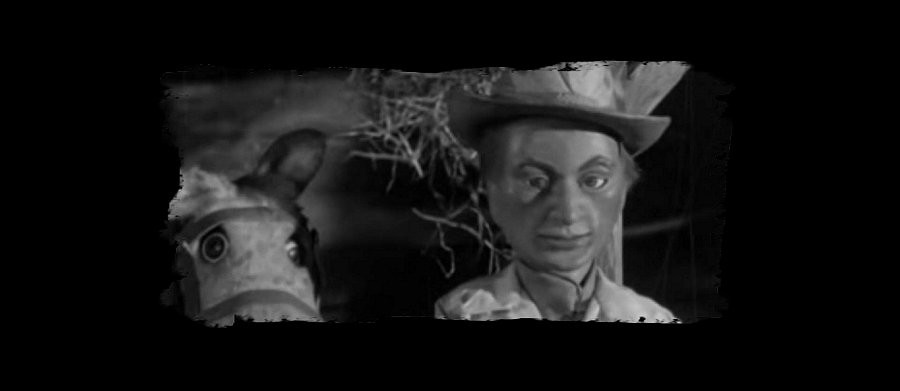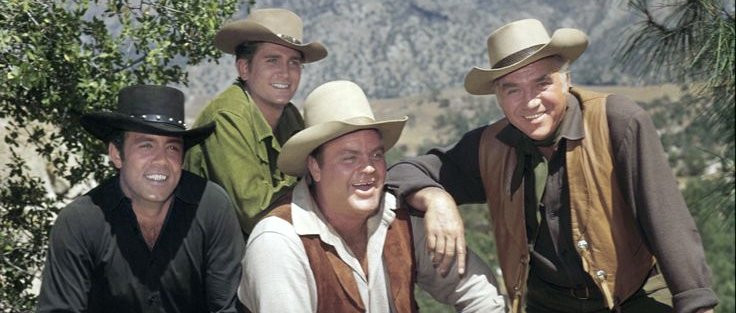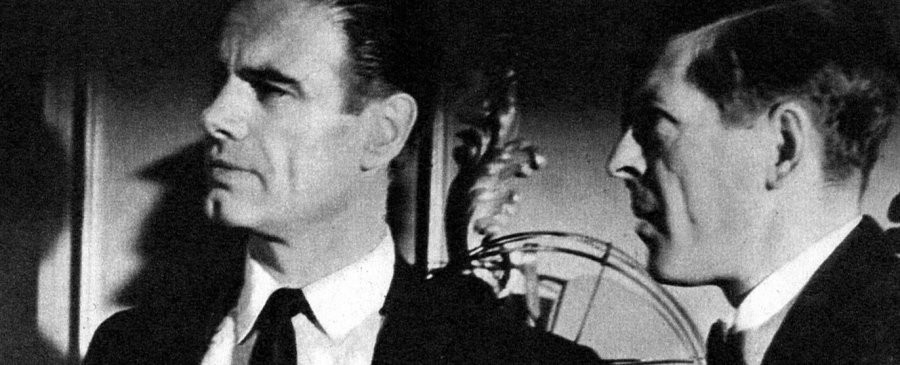
Torchy the Battery Boy
1959 - United KingdomBefore Thunderbirds soared into the stratosphere and Captain Scarlet walked with eerie grace, Gerry Anderson and his team at AP Films were building the foundations of a revolution in children's television — with string, glue, and no small amount of grit. Torchy the Battery Boy, commissioned in 1958 by The Adventures of Twizzle creator Roberta Leigh, may not be Anderson’s most fondly remembered series, but it represents a fascinating turning point in British puppet programming — a curious, whimsical concoction of fantasy, morality, and experimental technique that deserves far more recognition than it typically receives.
Broadcast officially from early 1960 as part of ITV’s Small Time children’s strand (though earlier regional airings did occur), Torchy the Battery Boy arrived just as Gerry Anderson’s Supermarionation dream was beginning to form. Yet ironically, despite being made with more money and ambition than Twizzle, Torchy is often dismissed as a lesser effort — a fate perhaps cemented by its unfortunate timing. Premiering just days before **Four Feather Falls, it found itself caught in the shadow of Anderson's increasingly dynamic output, and his own growing distaste for puppetry as a long-term pursuit.
The premise of Torchy is charmingly surreal. When children lose their toys to a freak gust of wind, kindly old toymaker Mr Bumble-Drop creates Torchy, a clockwork puppet boy with a magical torch capable of locating lost objects. In a moment of classic make-do magic, Bumble-Drop fashions a rocket from cardboard, and Torchy blasts off to a star where he discovers Topsy Turvy Land – a sugary utopia where cream buns grow on trees, chocolate fills puddles, and toys talk, walk, and build a fruit-based village called Frutown. The series deftly mixes moralistic fables (Torchy returns to Earth to teach naughty children a lesson) with a gentle escapist whimsy that feels like Enid Blyton meets early sci-fi.
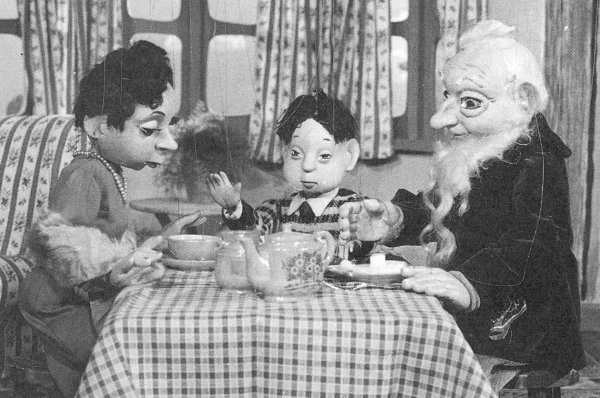
Technically, Torchy was a step forward for AP Films. With a boosted budget of £27,000 — nearly double that of Twizzle — Christine Glanville and her family* fashioned puppets with improved articulation, moving eyes and mouths, and finer wire work, all designed to increase realism and lessen distraction. The inventive set work by Reg Hill brought more depth to the screen, and ambitious special effects (including the rocket launch filmed using sparklers and a car battery — and nearly electrocuting the crew when Anderson lost patience and plugged it into the mains) hinted at the ingenuity that would soon define Anderson’s later series.
Performances too deserve praise. Voice actor Kenneth Connor, later a stalwart of the Carry On films, brought vibrant character to no fewer than eight roles, with support from Olwyn Griffiths as Torchy, and Patricia Somerset and Jill Raymond voicing the remainder of the cast. Their delivery brought life and humour to even the most bizarre scenarios.
Though the original 26 episodes were produced by Anderson and Arthur Provis at AP Films, the second series was made without them by Roberta Leigh at Associated British-Pathe, following an amicable parting. Under the terms of her contract, Leigh retained full rights to Torchy and all associated elements. For Anderson, Torchy was a professional step forward, if not a personal passion. It marked a point of no return: even if he was yet to fully embrace puppets, he had undeniably begun mastering them.
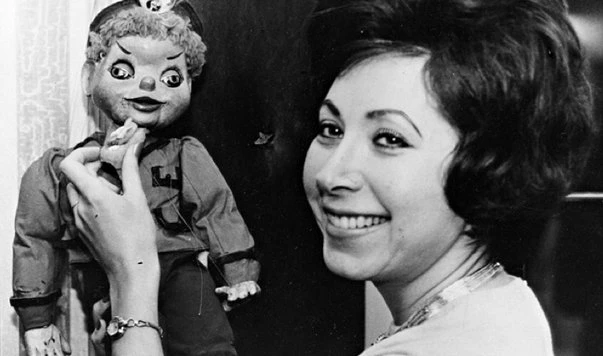
While its sugary tone and peculiar plotting may seem quaint or even baffling to modern eyes, Torchy the Battery Boy was a trailblazer. It marked the moment when children's puppet shows began to stretch the boundaries of production value and storytelling. In its wake came a wave of increasingly ambitious series, culminating in the golden age of Supermarionation.
In a delightful footnote, Torchy became the very first television series ever aired in Turkey, broadcast as Pilli Bebek between 1971–73. For such a whimsical show, its impact clearly travelled further than its cardboard rocket ever could.
Ultimately, Torchy the Battery Boy stands as a quirky but vital relic in the story of British television. Endearingly odd and technically pioneering, it may never sit alongside Thunderbirds or Stingray in popular memory — but without Torchy, they might never have flown at all.
Gerry Anderson now took a good long look at the type of show that was popular on television at the time, before deciding on the subject of his next series. It was a genre that had always appealed to him, as well. For his first solo puppet series he would turn to...the Western, and the fictional town of Four Feather Falls.
Trivia
*In her garage, Christine Glanville sculpted the puppet heads in plasticine before casting them in a mixture of cork dust, glue and methylated spirits which could then be sanded down to get a smooth finish. The puppets bodies were cut from wood by Glanville’s father, her mother then made the costumes and the finished article was then given back to Christine to add the finishing touches.
The opening titles for Torchy contained the most adventurous effect that AP Films had attempted up to that point. The sequence showed Torchy’s rocket blasting off from outside his house. Reg Hill and John Read wired up several hundred sparklers to the spaceship, which would then be triggered electronically via a car battery. The model spaceship would then be pulled to the ceiling by a pulley system.
Gerry Anderson got so impatient for the scene to be filmed that he jammed the wires to the trigger device straight into a mains socket. There was a blinding flash of light and the studio filled with smoke. But when it had cleared, more by luck than judgement, the crew had got the perfect shot!
**Although available for transmission from January 1959, Torchy the Battery Boy didn’t air in London until 23 February 1960 when it was shown as part of ITV’s afternoon transmissions for children, Small Time. The delay meant that by the time it reached the screens the second series, made by Associated British-Pathe, was ready for transmission, too. As a result ITV were able to show an unbroken run of 52 episodes, all new to television. The show appeared every Tuesday at the same time.
Another result of Torchy’s late appearance meant that it premiered in London just two days before Gerry Anderson’s next series, Four Feather Falls. With 'Torchy' airing on a Tuesday and 'Falls' airing on a Thursday, this was the only time that Gerry Anderson had two new series running at the same time in the UK.
The TV Times dated 21st – 27th February 1960 carried articles about both series in a double-page spread. Four Feather Falls was shown on the front cover.
It is believed that ABC aired 'Torchy' in the Midlands and Northern region area before 1960. Its debut may have been Sunday 11th January 1959 from whence it was shown bi-weekly.
Torchy The Battery Boy was aired in Turkey in 1971-73 as Pilli Bebek (The Battery Doll). This might sound like a pretty late date, but regular public broadcasting had began in Istanbul (Turkey's largest city) in 1971... Actually, Torchy The Battery Boy / Pilli Bebek is the first tv series ever aired in Turkey! - Assist. Prof. Dr. Kaya Özkaracalar Head of Film & TV Dept. Bahcesehir Univ. Istanbul-Turkey
Seen this show? How do you rate it?
Seen this show? How do you rate it?
Published on February 9th, 2019. Written by Laurence Marcus (April 16, 2025) for Television Heaven.


